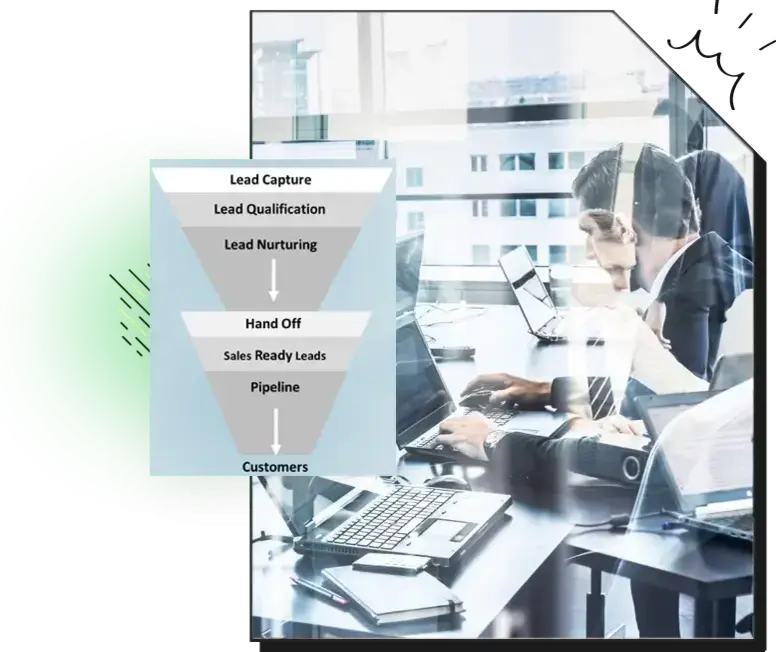Lead Management
Lead Management
Efficient Lead Management for Maximum Conversion
At Legal Assist, we have a team of highly trained intake specialists and lead auditors who are dedicated to ensuring the quality of each lead generated. Our specialists thoroughly review each lead against the campaign and tort criteria provided by the law firm and categorize them as qualified, disqualified, or maybe qualified leads. Our specialists also identify any missing information and work to convert leads into prospects. With our focus on lead management and quality assurance, Legal Assist is committed to helping our clients achieve their goals and grow their business.
Torts
Campaigns
Leads

Maximize Your Lead Conversion Strategy

Lead qualification
Evaluating the potential value of each lead and determining which ones are worth pursuing. This may involve reviewing the details of the case, assessing the likelihood of success, and considering the potential damages that could be recovered.
Lead prioritization
Ranking leads based on their potential value and prioritizing those that are most likely to result in successful cases.
Lead assignment
Assigning leads to attorneys or paralegals within the law firm who are responsible for handling mass tort cases.
Lead tracking and follow-up
Tracking the progress of each lead and following up with potential plaintiffs to gather more information and assess their interest in pursuing a case.
Lead conversion
Turning leads into paying clients by successfully persuading them to retain the law firm’s services and entering into a representation agreement.
Success of Sales Process
with stand-alone Lead Management
Efficient lead capturing and tracking:
Streamlined lead qualification:
Improved lead nurturing:
Better sales team performance:
Increased revenue:
with out stand-alone Lead Management
Difficulty in lead tracking:
Inefficient lead qualification:
Poor lead nurturing:
Ineffective sales team performance:
Lower revenue:
FAQ's
Empowering You with Knowledge: Frequently Asked Questions About Our Lead Management and Review Services.
Looking for more personalized assistance? Our team is here to help. If the above FAQs don’t answer your questions, let’s schedule a free one-on-one meeting at your convenience to better understand your specific requirements. Contact us today to get started.







